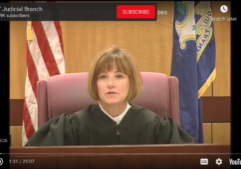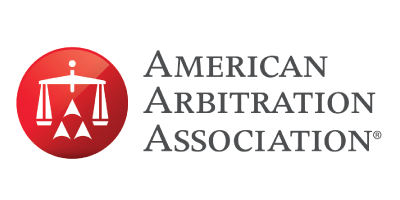The Road To Settlement
by Judge Elaine Gordon (ret.)
March 2024

Elaine Gordon is a retired Superior Court judge and founder of Gordon ADR. She is a member of the National Academy of Distinguished Neutrals and a Distinguished Fellow of the International Academy of Mediators.
At the start of every mediation, I welcome all the participants to a brief
orientation session where I point out that the trip along settlement road,
from adversary to successful negotiation partner, might be an emotionally
challenging and bumpy ride. The road is made up of a mixture of
assertiveness and understanding displayed by the participants. It’s my job
to smooth the road to settlement by helping the parties address one of the
main tensions in all negotiations -- the tension between empathy and
assertiveness.
Assertiveness is the ability to express and advocate for one’s own needs,
interests, and position. For lawyers, assertiveness is second nature. We
inhabit an adversarial system; without assertiveness, we can’t do our job.
But as trials vanish, and settlement becomes the norm, our job skills may
need tweaking. To be a zealous advocate in negotiations, you need to
understand with whom you are negotiating. Successful mediations depend
on negotiators combining cognitive empathy, or understanding of your
bargaining partners, with assertiveness on behalf of their clients.
Robert Mnookin, the Harvard law professor and chair of the Harvard
Program on Negotiation, does not consider empathy and assertiveness to
be polar opposites. He describes them as “two independent aspects of
negotiation behavior,” both of which are necessary to becoming an
effective negotiator. So, if we know how to be assertive, how do we add
empathy without compromising our goals? When we prepare for an
argument to a judge or jury, we try to imagine how the listener will react to
what we say. This is the start of understanding and empathy.
Mnookin defines empathy as “the process of demonstrating an accurate,
non-judgmental understanding of the other sides’ needs, interests, and
perspectives.” Empathy does not require sympathy or agreement; it is a
“value-neutral mode of observation.” It is the ability to understand your
bargaining partners’ perspective. With this understanding, you are able to
defuse hostility, correct misconceptions, and gain information that enables
you to separate your negotiating partner’s interests from their position.
As a mediator, I approach clients and lawyers non-judgmentally, with
empathy. Then I try to help each side understand the other. I do this, not to
persuade, but to increase opportunities for settlement. The more each
negotiator can come to understand the other side, the greater their ability to
assert themselves effectively. The result is a less frustrating negotiation
and a much greater chance of settlement.
As more lawyers embrace the world of mediation as their primary path to
settlement, they realize that a very different skill set, apart from trial
advocacy is required to successfully close their cases.































